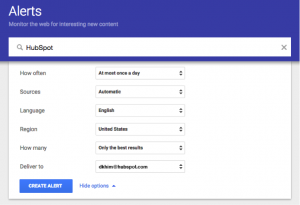— July 31, 2017

When organizations get started measuring employee engagement, it can quickly become overwhelming.
How do you know what to measure? Is one metric more important than the other? Is asking employees how happy they are enough? These are the types of questions you’ll ask yourself.
In our research, based on decades of academic research on employee engagement, we found that there are 10 metrics that you need to look at.
We’ll go through each of them, explain why they matter, and what you can do to start monitoring them consistently.
Before that though, two important points to highlight.
- One question that always comes up when starting to measure is about benchmarking. The best advice we can give about benchmarking is that while industry benchmarks are important, you should put more focus on improving yourself. Always work to improve yourself and compare yourself to your own previous month.
- Another question that’s bound to come up in the process is how often to measure. There’s no hard rule here but you want to measure frequently. The more frequent, the better, because you want to have the most accurate and complete data possible.
The 10 Employee Engagement Metrics You Should Measure
For an employee to be truly engaged at work, there needs to be many things that are taken into account. You can’t only look at happiness or only look at the relationship with the manager.
Some of these metrics are more important than others. For example, it’s more important for your organization to offer opportunities for growth than free fruit.
Here are the 10 metrics you need to measure.
-
Personal Growth
This is one of the most important (if not the most important) metric to be tracking. Employees want growth, in every sense of the term. They want more money, more responsibility, more credit, more autonomy, etc.
Not only should your organization be measuring this frequently, but this should be at the root of your performance management. The number one goal of every manager should be to ensure the development and growth of each member of their team.
Question to ask employees: Do you feel like you have enough opportunities for growth?
Pro-tip: Follow up this question (and all others) with a “why”. Get to the root of the problem.
-
Happiness
Happiness is an important metric to be tracking, but where a lot of organizations go wrong is that they only measure happiness. While it’s good to know how happy your employees are, you’re likely missing out on a lot of information if that’s all you’re looking at.
You know the old saying, happy workers are busy workers. The research shows that they’re 12% more productive, so it’s worth it to invest in happiness.
You’ll likely find out that what employees really want to make them happy are free things, things like more work-life balance, more autonomy, exciting projects to work on, etc.
There will be times when something is going on in the personal life of an employee and their happiness will be out of your control. That’s perfectly normal, in those situations simply offering to listen or offering to help in any way is good enough.

Question to ask employees: On a scale from 0-10, how happy are you at work this week?
-
Ambassadorship
At Officevibe, we call this metric “Ambassadorship”, but just so you understand, what we’re ultimately measuring is loyalty and pride. We want to understand if employees are not only happy where they work, but are true ambassadors of the brand.
That’s the ultimate goal in engagement, when someone asks one of your employees where they work and their eyes light up as they passionately describe their job.
This metric is modelled after the Net Promoter score, a metric designed by consulting firm Bain many years ago as a customer service metric.
Question to ask employees: On a scale from 0-10, how likely are you to recommend our organization as a place to work?
-
Relationship With Peers
This is an important metric to keep an eye on because teams need to be able to work well together to achieve productivity, good communication, and collaboration.
It’s easier said than done, because there are a lot of different personalities on a team, but as a leader it’s your job to make sure everyone feels connected in the team.
Being ignored at work is even worse for you than being bullied. Work hard to make your team’s culture one of inclusion and equality.
Question to ask employees: On a scale from 0-10, how would you rate your relationship with your peers?
-
Relationship With Manager
People join organizations but they leave managers. The employee-manager relationship is so important because of how much of an effect a manager can have on an employee.
You want to build an open, honest, and trusting relationship with an employee so that they can feel free to express themselves without getting into trouble. All of that unnecessary stress is bad for an employee and bad for productivity.
Do your best to communicate frequently, honestly, and politely with your team and you’ll be okay.
Question to ask employees: Is there anything that you would change to improve the relationship with your manager?
-
Recognition
Recognition is simply the acknowledgment of a job well done. It has nothing to do with rewards, those are two separate things.
Employees need frequent recognition.
They need to know that their work is good and that you’re appreciative with their contribution to the team. When they don’t get that validation from you, they start to worry, and again, experience unnecessary stress. It’s up to you to remove that fear from them.
According to Gallup, you should be praising your employees at least once every week.

Question to ask employees: Do you feel like you get enough recognition for your work?
-
Feedback
Feedback is critical for employees to grow, so it’s an important metric to make sure to track frequently.
If employees aren’t getting the feedback they need, you’ll need to address that as soon as possible, and give managers the tools they need to give better feedback.
Want help giving feedback? This guide for managers will help you.
Make frequent feedback a priority, and schedule regular meetings with members of your team.
Monthly one-on-ones are great, but don’t forget to have those informal sessions every now and then too.
And while it’s important to give feedback frequently, that’s only half the battle. The quality needs to be there too. Your feedback should be specific and actionable.
Question to ask employees: On a scale from 0-10, rate the quality of the feedback you receive.
-
Wellness
Wellness, both physical and mental, are important things to look at. Most workers around the world are stressed, tired, and overworked.
As leaders, we need to be mindful of this and do our best to remove as much of that as possible to have healthy, happy, and productive teams.
Have honest discussions about work with your team, and remind them that it’s okay to take on a lighter workload if they need to. The last thing you want is one of the members of your team to burn out.
Question to ask employees: On a scale from 0-10, what’s your stress level at work this week?
-
Alignment
When an employee’s personal values align with the organization’s values, that’s when you have a true culture fit. That’s when you’ll have a much easier time motivating and engaging employees because they believe what you believe. They can authentically and genuinely help your brand grow.
One way to help align employees is by helping them understand why you do what you do. Let them see who your customers are, who your competitors are, and what you’re doing to differentiate. The more you can focus on that long term vision, the more it will help them understand where the organization is headed.
Question to ask employees: How well do your personal values align with our core values?
-
Satisfaction
Satisfaction is a great metric to look at because it encompasses a lot of what helps an employee to be engaged at work.
When we think about “satisfaction” at work, we’re referring to three things:
- Compensation (salary + benefits)
- Workplace (the work environment)
- The role of the employee (clarity of expectations, satisfaction with day-to-day)
You should be frequently checking in with employees to see if they have what they need and if there’s any confusion you could clear up.
Salary is always a sensitive topic, so it might be worth it to focus on benefits instead. The trust and respect that comes from allowing employees to work at home some days is worth more than a salary increase.
Question to ask employees: Is your work environment distracting?
Which Employee Engagement Metrics Matter To You?
Let us know your thoughts in the comments!
Business & Finance Articles on Business 2 Community
(75)







